From the Publisher


A prominent Viennese psychiatrist before the war, Viktor Frankl was uniquely able to observe the way that both he and others in Auschwitz coped (or didn’t) with the experience. He noticed that it was the men who comforted others and who gave away their last piece of bread who survived the longest – and who offered proof that everything can be taken away from us except the ability to choose our attitude in any given set of circumstances.
The sort of person the concentration camp prisoner became was the result of an inner decision and not of camp influences alone. Frankl came to believe man’s deepest desire is to search for meaning and purpose. This outstanding work offers us all a way to transcend suffering and find significance in the art of living.
|
|
|
|
|---|---|---|
|
|
|
|
Product description
Review
An enduring work of survival literature. ―
New York TimesA book to read, to cherish, to debate, and one that will ultimately keep the memories of the victims alive — John Boyne, author of The Boy in the Striped Pyjamas
I have loved this book for so many years, and I think every human being should read it. — Simon Sinek
Viktor Frankl…one of the moral heroes of the 20th century. His insights into human freedom, dignity and the search for meaning are deeply humanizing, and have the power to transform lives. His works are essential reading for those who seek to understand the human condition.
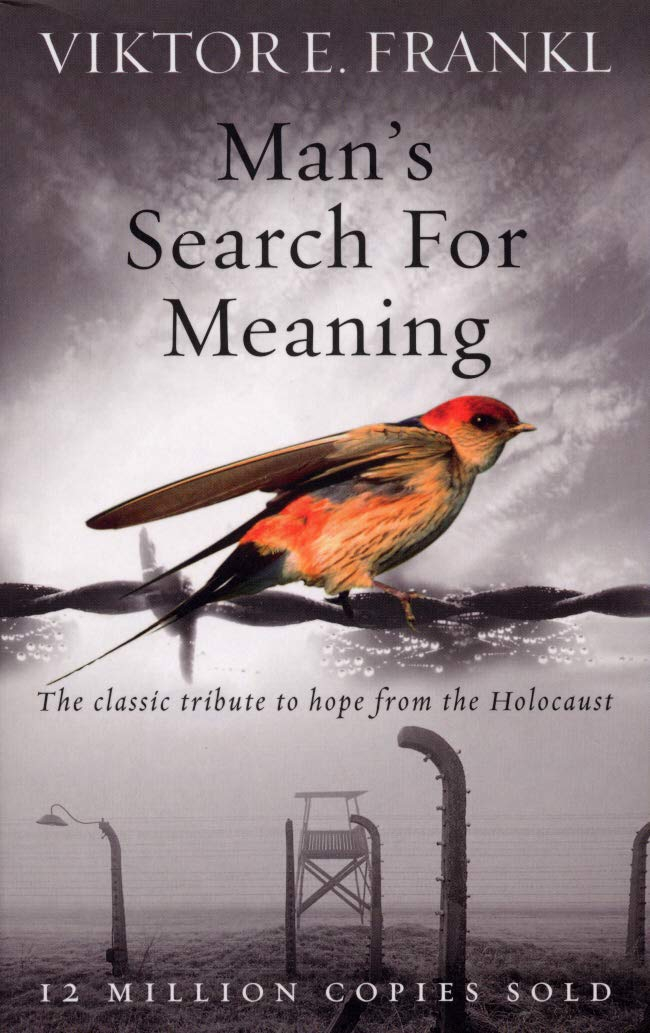



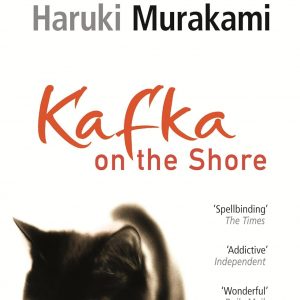
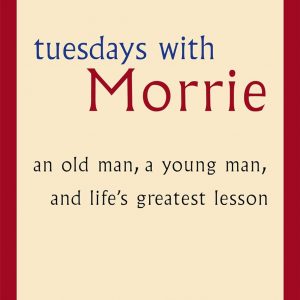
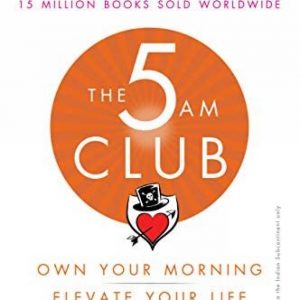
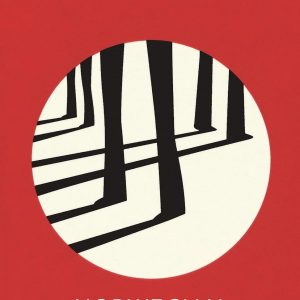
freak_Redefined –
THIS BOOK REVIEW IS ONLY BASED ON MY FEELINGS DURING READING THE BOOK. IT DOES NOT INTENT TO HURT ANYONE’S FEELINGS, AND DOES NOT MEANT TO COMPARE WITH ANY OTHER REVIEWER’S FEELINGS.Well writing a review for this kind of extraordinary book is a big audacity for me. however here I’m, trying to give some brief review of the book. The book is basically divided into three parts, the first one describes the way the Jews prisoners were treated in the Nazi Concentration Camps and how their lifestyle was. In the second part, the author described the basics of Logotherapy, a way of treatment of the Psychotherapeutic Patients. And finally, in the third part, he described what he actually meant by Man’s Search for meaning. Being a Jew, the author was transferred to the Auschwitz, Dachau and other concentration camps during the Nazi occupation in Austria. Here, in the first part of the book, the author described his days in those concentration camps, where is were no chance of seeing the morning sun in the next day. And this happened every day. He described the way the SS guards used to treat the prisoners, the corruption prevailed in the camps, the malnutrition, the lifestyle of the camp Jews etc. The way he described the tortures the prisoners suffered, would surely bring tears to your eyes. During his description, he also pointed out the psychological condition of the other comrades in those camps. When most of the prisoners lost all hope of his life, some of them still kept the faith, that good days were coming. In the second part, the author basically described the Logotherapy Techniques. And the most interesting part of the book is the third part. Here the author describes “Man’s search for meaning”. We, the human beings on this planet are living for a purpose. Until & unless we can’t find the purpose of our life, there is no reason for us to be here alive. Most of the prisoners in the camps lost all of their hopes and then died because they lost their purpose, as per the author. It is a must-read book for all I think. The book also consists of few life-changing quotes which I liked in the book and would like to share:1. For success, like happiness, can’t be pursued; it must ensue, and it only does so as the unintended side-effect of one’s dedication to a cause greater than oneself or as the by-product of one’s surrender to a person other than oneself.2. There are things which must cause you to lose your reason or you have none to lose.3. Suffering completely fills the human soul and conscious mind, no matter whether the suffering is great of little. Therefore the ‘size’ of human suffering is absolutely relative.4. No man should judge unless he asks himself in absolute honesty whether in a similar situation he might not have done the same.5. The human being is completely and unavoidably influenced by his surroundings.6. Suffering is an ineradicable part of life, even as fate and death. Without suffering and death, human life can’t be completed7. Emotion, which is suffering, ceases to be suffering as soon as we form a clear and precise picture of it.8. There is no need to be ashamed of tears, for tears bore witness that a man had the greatest of courage, the courage to suffer.9. A man who becomes conscious of the responsibility he bears toward a human who affectionately waits for him, or to an unfinished work, will never be able to throw away his life. He knows the “why” for his existence, and will be able to bear almost any ” how”.10. The body has fewer inhibitions than the mind.11. No one has the right to do wrong, not even if wrong has been done to them.
Dhruv –
OMG! It’s a good knowledgeable and yet thrilling book. I have not come across any such book with combination of these two aspects together in one book.So, here is the summary & take away from this thrilling story.The author was a neurologist and psychiatrist. So, by education he knew technical brain anatomy (being neurologist) as well as logical and emotional aspects of human behavior with respect to the brain functioning (being psychiatrist). He spent 3 years in various concentration camps which were basically prisons where Nazis (hitter’s army) used to keep potential threat like prisoner of wars and Jewish during holocaust in 1940 (somewhat during second world war).The book is a journey of the author’s surviving in various camps during his 3 years tenure where he went through immense physical torture, hyper anxiety, inhumane living conditions, insufficient food and unhealthy environment of deadly diseases. The details on tortures were so horrifying that they will give you goosebumps by imagining how humanely it was impossible to bear such pain. The life of prisoner was only a number (a number was printed on everyone’s body) for guards and they looked for every possible opportunity to torture and kill prisoners.At various instances he explained the two aspects of feeling in one scenario where a person is feeling horrified and blessed at the same time. For instance, once few people along with him were standing bare feet in snow for 8 hours straight in one of the camp they were recently transferred and due to frostbite on their foot there was immense pain but at the same time they were happy as standing outside in snow they observed that there was no chimney in the camp (chimney showed that there were gas chambers in camp where prisoners were burned alive). Another instance he talked is that one day they were getting transferred in a train and everyone was anxious that they were getting shifted to a death camp where all of them will be killed yet they happy to see outside scenery after a long time from small holes in train.Author explained that there are various mental stages a person goes through in such camp and at the last stage he becomes numb to death. Imagine that a person is so much scared for a long time that he doesn’t feel scared anymore. His emotional imbalance causes various types of behavioral changes which ultimately makes him inhumane emotionally, after all emotions are something which makes a man different from other living creatures.Now, here to avoid going into the last mental stage where the person gives up the hope to live and dies author explains the ways or tips using which he survived and as well as he help few among himself survive. The first tip is, let me quote exactly what he mentioned in the book is “He who has ‘WHY’ to live, can bear with almost any ‘HOW’. So basically, he explained that if a person has a reason and hope to survive and sees a logical ending to these sufferings will be able to survive. Let me try to explain the reason he has referred here, there were two people in the camp who gave up the hope and wanted to commit suicide author asked few questions to them which made them realize that what reason they must live for. One person had a small kid which would be waiting for him in some other country, so he realized that one day he might have chance to go and live with his kid. Another person had an unfinished script which only he could complete on which he was working from a very long time before he was captured and sent this camp, so he realized that one day he will get freedom and will complete his pending script.Another point to note in above mentioned instance is the reason or hope to live can be anything, it may be a personal matter to you, another human in your life or a thing also. He said “A man who becomes conscious of the responsibility he bears towards other human who affectionately waits for him or to an unfinished work, will never be able to throw his life as he knows the WHY for this life & existence and hence will be able to bear with almost any HOW”.He also talked about stimulus and response control which I think was better explained by Steven covey in his book. But one of the quote he put in the book was worth mentioning that “everything can be taken from a man but one thing, and that is one’s attitude in any given set of circumstances”.Lastly, he talked about happiness where he says that “happiness cannot be pursued but ensued”. The happiness is internal, and its means changes time to time, situation to situation, to person to person and like there cannot be a standardize rule to happiness like next movement in a game of chess as movement will be specifically based on current position of other players chess components (hope you understand what I mean). Happiness comes in alignment with your core values in life and which is why it changes time to time, person to person.What I did not like about the book is that there were disconnection in the story he narrated and the journey in camp is not in proper sequence, he only explained some random days and instances which sometime become irritating and disappointing. I understand that the prime purpose of the book was not to take the reader through the day by day, event by event his tenure in camp, but it is to only to use such events of the camp as context to explain the point he is trying to make about human behavior. But I felt that it would have been a very great story of his survival to go through day by day in detail.4 out of 5. So, what’s your meaning of life at this moment in this phase of your life……? Think about it.
Prashant –
Still gotta read but packaging is fabulous, its print and hard cover gets my attention everyday but i am reading another one right now so i had to ditch it always but soon ??
Paul Newman –
Great deals on books.. K Book Mart is Good place for Collective Books.
Very good deal I got it in this book. The seller has lots of nice books at the lowest price. Books are new.
Rodrigo M. –
Uma das melhores leituras que fiz
Esse livro me ajudou muito a colocar meus problemas em perspectiva, tornando-me mais grato por tudo que tenho na vida.O momento do livro que ele está dormindo no meio de outros em um degrau me marcou bastantes. Todos os dias tenho o luxo de dormir na minha cama. Às vezes tenho dificuldades para dormir e agora sempre vem a minha cabeça que sou extremamente privilegiado e que as coisas poderiam estar muito piores.Esse é um exemplo simples de aplicação prática do livro, mas para mim foi muito marcante em vários aspectos.
Black Panda –
Can We Live in Peace Forever?
It’s not exactly a review but some thoughts after reading this book and observing current events.Can you imagine life being upended in a matter of weeks? You were forced to board a train to Auschwitz for a new life of unknowns. When you arrived, you were either directed to the left or to the right. You and your family were separated. You were instructed to go right while the rest of your family were instructed to go left. The life for the right group turned out to be half a decade of dehumanizing tortures. As for the left group, they were murdered within 24 hours of arrival to Auschwitz. You learned about the fate of the left group by realizing what all the smokes were rising above the structure your family went into. I was in shock and disbelief when I read about this in Man’s Search for Meaning but this crazy thing DID happen 80 years ago, just a few years before my parents were born. How could this world be so barbaric?Before Auschwitz, most people were living a fairly normal life worrying about paying their bills, raising their family, advancing their careers, etc just like us ordinary beings today. People know there’s war but I doubt people thought about how they could be swallowed by the wars in a matter of weeks started by sinister people who only care about their own power. The whole thing is just insane and ridiculous and you would hope humanity learned its lessons. Nonetheless, 80 years later, we are back to square one. The war in Ukraine is ruthless and absurd. It destroyed a country where hardworking people falsely thought they could live in peace and prosperity. The Russian soldiers are asked to invade and to do cruel things Putin asked them to do: murdering, vandalizing, setting things on fire and destructing instructures that took years to build. I don’t think these Russian soldiers out of their own will would want to do this. What exactly is this evil power force making people do crazy and destructive things? Is it really just Putin? Or somehow our world allows this to happen.This reminds me of the story Haruki Murakami wrote about his father. His father was forced to go to China to fight the war for Japan during WWII. He was a 19 year-old, having grown up in a Buddha temple in Kyoto. Despite the Buddhist teachings, he was forced to go to war by the government. His father witnessed the killing of Chinese prisoners of war and might even be forced to do the executions. Part of the military training at the time was for new soldiers to practice killing POW to get them into “the zone”, to become a competent fighter. His father told Murakami about this and this made a huge impression on him. He could sense his father was deeply affected by this experience for the rest of his life, with grief and guilt. After all, he was complicit. But he as an individual had no choice. If the government forced him to choose war, he could not choose peace instead. If the government goes completely insane, we as citizens have no recourse.As I am typing this up, I am wondering how long the peaceful life we have in America would last. Three months ago most Ukrainian people probably couldn’t imagine what lay ahead. Should I worry about my family in Taiwan? Things can change drastically in a very short period of time. My husband and his family left Vietnam in 1982 to escape communism. They endured several years of communism rule and my father in law was jailed for a couple of years for “helping Americans”. Prior to the communist takeover, the family ran a large rice mill and owned a substantial amount of prime real estate in Saigon. Then Americans left. Overnight they lost all their assets to the communist regime. They went from a materially rich life to a life of hunger and partial homelessness. Young women had to hide to avoid being raped. My mother in law sold her gold jewelry in the black market to get her husband out of jail and the family escaped to America penniless. Who is responsible for all the sufferings? They did nothing wrong. They were hardworking people running an honest business. Perhaps they didn’t pay enough attention to international politics. But the price they had to pay was absurdly high.We individuals are so small and powerless we don’t know what current of our crazy time can swallow us despite our innocence and futile efforts. The thought that we are in control is an illusion. When I think about the great suffering in Auschwitz, China, Vietnam and endless other man-made tragedies, I am so grateful for the peaceful time I still live in and whatever worries I have seem so trivial. If we strive for anything for the world, we should strive for peace.
Piscoi Ioana Gabriela –
Molto profondo e bello
Bellissimo questo libro ma anche pesante , ti fa capire tante cose !
Orion –
A Timeless Journey Through Resilience and Hope
Man’s Search for Meaning” by Viktor E. Frankl is a poignant exploration of resilience under the most testing conditions. As a Holocaust survivor and psychiatrist, Frankl intertwines his concentration camp experiences with his psychological expertise. Central to the book is the idea of logotherapy, which posits that finding meaning in life is the primary human drive.Frankl’s narrative transcends its historical context, offering timeless insights into human endurance and the quest for purpose. The book is especially impactful for those facing personal adversities, as it highlights the power of choice and perspective in shaping one’s destiny.This work is not just a memoir; it’s a guide that challenges and inspires the reader to reflect on their life’s meaning. Frankl’s enduring wisdom makes “Man’s Search for Meaning” an essential read for understanding the depths of the human spirit and the pursuit of hope amidst despair.